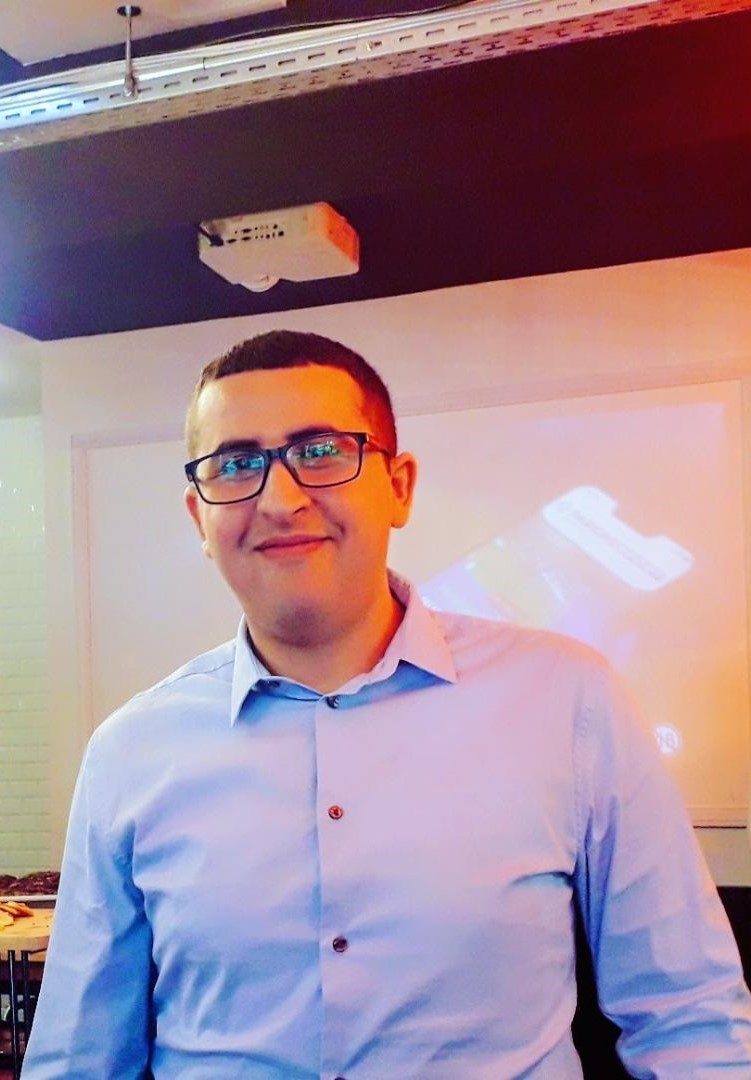Raouf Hammache, a chemist working on the fouling and aging of membrane systems

Dr. Zine Ellabidine HAMMACHE “Raouf’’ is a chemist working on membrane separation and surface characterization of membrane materials using electrochemical techniques. He carries out the Leak-Tec project at the CIP laboratory, ISCR, University of Rennes.
BIENVENUE Team : Hello Raouf, let me know about your background.
During my Master’s thesis project in analytical chemistry, I carried out a study on the photodegradation of organic pollutants by irradiation of a synthetic spinel (MgFe2O4) with sunlight. This work allowed me to publish my first article and sparked my passion for characterization and separation techniques, which fueled my interest in the research field. As a result, I participated in a nationwide doctoral competition and won first place. I worked on the separation and recovery of rare earth elements (REEs) from phosphate products and electronic waste by membrane process for my PhD thesis, which I successfully defended in 2021 at the University of Science and Technology Houari-Boumedine “USHTB”, Algiers, Algeria.
What is the project Leak-TEC about?
The main aim of the Leak-Tec project is to develop electrochemical techniques for characterizing the fouling and aging of membrane systems.
Pressure-driven membrane systems are widely used in the food sectors and in wastewater treatment, the fluid to be recovered is often a concentrate that cannot cross the porosity of the membrane, causing fouling inside this porosity and/or on the membrane surface by deposit and/or adsorption of foulant materials (i.e., organic compound, inorganic compound, or a combination of both).
Fouling is regarded as an obstacle in membrane filtration systems, since it reduces the performance of these systems significantly. To eliminate this phenomenon, various cleaning steps (physique, chemistry/enzymology, and oxidation) must be carried out depending on the nature of the foulant materials and the fouling stage. This cleaning process results in a complete halt of all production activities, which in turn has adverse effects on the overall production cost. Furthermore, the extensive use of chemicals for cleaning membrane filtration systems accelerates the aging of these membranes and other related components.
As an outcome, we propose the development of advanced characterization techniques for the early detection of fouling using electrical signals through the Leak-Tec project, based on electrochemical impedance spectroscopy and electrokinetic leakage phenomenon.
The completion of this project could have direct repercussions on the food industry consortium which is very widespread in Brittany, since the early detection of fouling could optimize the main cleaning steps, this allows (i) to ensure a good performance in pressure-driven membrane systems (ii) to reduce the use of cleaning reagents (deionized water, alkaline detergents, oxidants, and others…) which has a positive impact on the environment (iii) to make these processes less energy-intensive by eliminating fouling in a timely manner.
Why did you choose to implement it in this particular laboratory?
This choice is influenced by a variety of things. The first is the presence of internationally renowned experts in this team; at their head, my supervisor Prof. Dr. Anthony SZYMCZYK, who is one of the leading experts (President of the European Membrane Society, recipient of the 2013 IUPAC distinguished award) on the physico-chemical characterization of membrane materials with applications in functionalization, fouling, ageing…and other.
The second factor is the presence of all necessary equipment for the project’s completion. The CIP Team is equipped with electrochemical impedance spectrometer, electrokinetic analyzers for zeta potential and electrokinetic charge density measurement of flat solids, particles or fibers using streaming current and streaming potential techniques.
Thank you Raouf!
